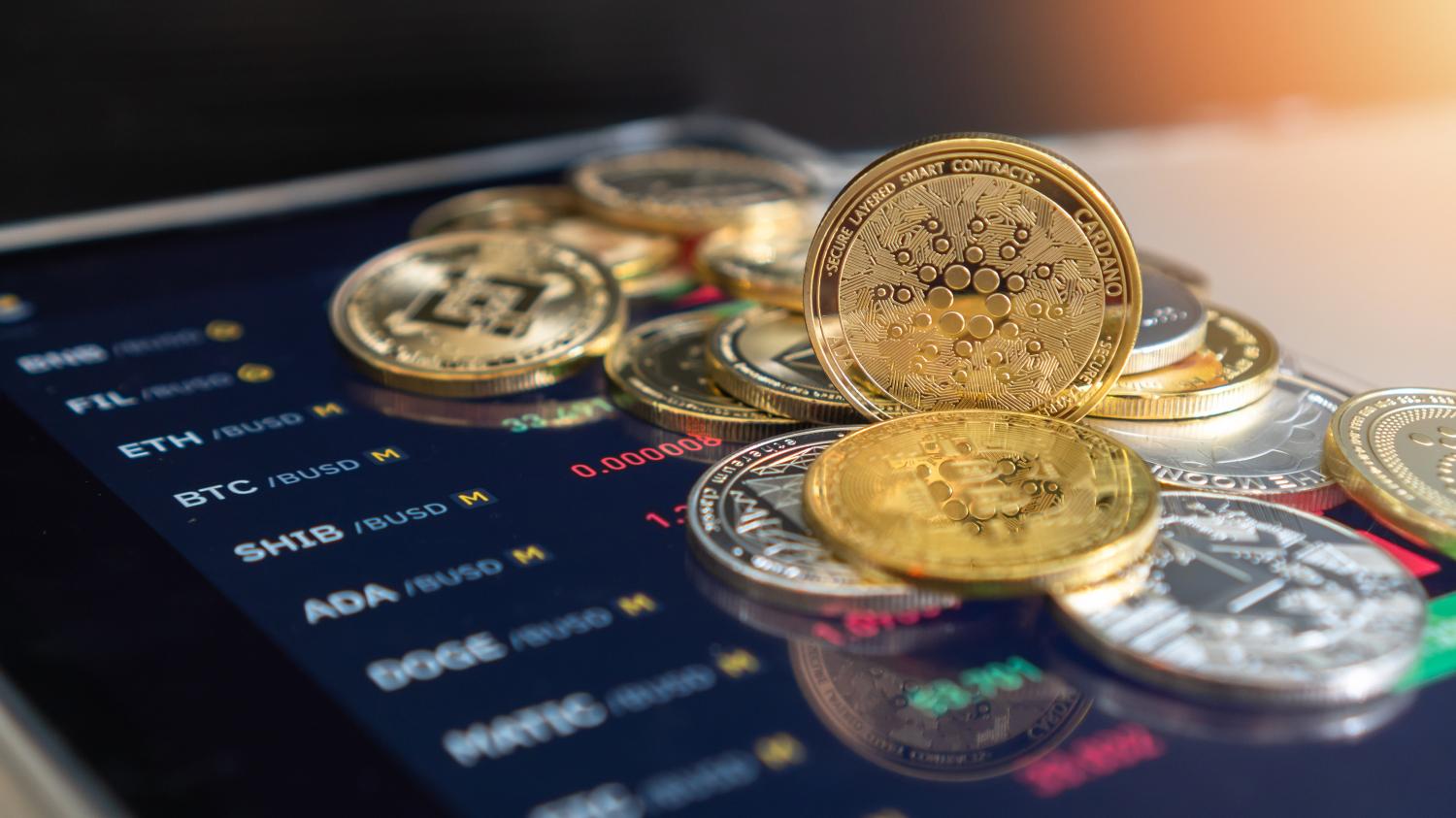Last year was a rough one for cryptocurrencies as Bitcoin, the largest digital asset in the world, lost nearly 65% of its market value.
Crypto enthusiasts were caught off guard by a series of unfortunate events such as the Terra Luna crash, the collapse of major exchange FTX, and unfavourable macroeconomic conditions.
In 2023, Bitcoin is recovering amid upside momentum, partly attributed to encouraging macroeconomic conditions.
Moreover, the deteriorating condition of the US banking system has prompted investors to look for alternatives to traditional financial instruments.
This year Bitcoin has rallied by 80% above last year, though the asset is still down almost 50% from its record high of US$69,000 in November 2021.
"Last year was one of the toughest for the cryptocurrency space, with many digital asset operators going bankrupt," said Jirayut Srupsrisopa, founder and chief executive of Bitkub Capital Group Holding Co Ltd, Thailand's leading cryptocurrency platform, referring to the failure of Luna, FTX and Three Arrows.
After the shuttering of Silvergate Bank and Signature Bank in the US, the market is expected to face further challenges in terms of stricter regulations, new banking partnerships, as well as reduced trust among investors.
According to Mr Jirayut, Bitcoin saw the biggest drop to $16,000 in the first week of January, but the price has rebounded to $30,000, especially after several bank runs in the US.
"The market has been moving sideways mostly, with less volatility compared with last year," he said.
"The volume has not returned to the peak period in 2021. We are at a quarter of the peak level."
According to Cointelegraph, the market capitalisation of Bitcoin added $194 billion in 2023, with 66% year-to-date growth outperforming top Wall Street bank stocks amid increased fears of a global banking crisis.
"In Thailand, the trading volume averages 1 billion baht per day now, but during the the peak Bitkub used to post 4 billion baht," said Mr Jirayut.

Analysts anticipated that Bitcoin is likely to benefit from increased demand and positive sentiment among investors, while the overall cryptocurrency winter market is still recovering from recent ease of inflation and interest rate hikes.
DUST HASN'T SETTLED
Following the collapse of several cryptocurrency exchanges last year and a few US banks earlier this year, he said "the dust hasn't fully settled" in the digital asset space.
"The crises are not over yet," said Mr Jirayut.
"Some 327 smaller banks are still at risk as the US faces a dilemma between controlling inflation by increasing interest rates or protecting banks because of liquidity mismatches," he said.
US regulators, including the Federal Reserve, the Federal Deposit Insurance Corporation and the Office of the Comptroller of the Currency, have warned banks of the liquidity risks associated with having crypto firms as clients in a joint statement in late February, following the recent bank failures.
The regulators identified looming liquidity risks caused by crypto operators because of the unpredictable scale and timing of deposit inflows and outflows.
"When a bank's deposit funding base is concentrated in crypto asset-related entities that are highly interconnected or share similar risk profiles, deposit fluctuations may also be correlated, and liquidity risk may be further heightened," the statement said.

ANOTHER FAILURE
Meanwhile Bittrex, one of the biggest digital asset operators, is the latest to fall, said Mr Jirayut.
"However, the shocks are much reduced this year. There could be more to come," he said.
The Seattle-based cryptocurrency exchange platform recently filed for bankruptcy, covering only domestic entities. Bittrex Global, which operates outside the US, will continue to provide services.
Bittrex laid off more than 80 employees. It is reported to have more than 100,000 creditors, with assets estimated at $500 million to $1 billion.
The "current US regulatory and economic environment" was cited by the company as the reason to liquidate.
"I think we are living in a perfect storm. Inflation is at an all-time high and the Russia-Ukraine war is far from over, not to mention an ageing population, technological disruptions, environmental issues, decoupling between the West and East and people are losing their jobs," Mr Jirayut said.
In Thailand, cryptocurrency investment by local investors has decreased significantly from 2021 and early 2022, in part because the Securities and Exchange Commission (SEC) stepped up regulatory scrutiny of digital asset investment.
The trading value of digital assets on Thai exchanges the first week of May was 5 billion baht, representing only 13.5% of April's total trade of 37 billion baht.
Most of the trade was by individual investors, with the highest trading value this year in February at 56 billion baht.
Active trading accounts at Thai digital asset exchanges as of the first week of May tallied 58,000 accounts, down from 155,000 in April, or 3.17% of the total of 2.93 million digital asset trading accounts.

Mr Jirayut pointed out that the bitcoin price saw the lowest drop to $16,000 in the first week of January this year, but the price rebounded to $30,000, increasing by 15%, especially after the bank run.
TOWARDS A GOLDEN YEAR
Some analysts speculate Bitcoin will benefit from increased demand and positive sentiment among investors as the cryptocurrency market recovers from the recent easing of inflation and interest rate hikes.
Analysts predict Bitcoin may reach $35,000 later this month.
In April, Bitcoin touched the key resistance level of $30,000 for the first time since June 10, 2022, then started dipping below $28,000.
Bitkub anticipates a surge in volume, activity and price movement once the market enters a "golden year" in 2024, becoming more bullish based on statistics that indicate the first price peak occurred after Bitcoin's halving started in 2013, followed by subsequent waves in 2017 and 2021.
"On a micro level, a Bitcoin halving is expected in April 2024. The years when a Bitcoin halving occurs are dubbed a golden year," said Mr Jirayut.
"Next year will be interesting because the target inflation range should return to 2% in the US, meaning the Fed is likely to stop raising interest rates.
"However, if inflation remains stubbornly elevated, there could be more negative supply shocks from supply-pull inflation. If these uncertainties continue, people are likely to diversify their wealth into alternative assets."
According to the SEC, as of May 8, Bitcoin provided the highest return across all asset classes this year at 65.4%, followed by Ethereum at 52.1%. The return for the Nasdaq-100 was 22.4%, 9.88% for gold and 3.44% for 10-year US government bonds.
Merkle Capital, Thailand's first digital asset fund manager, said Bitcoin dropped on news of intense US regulatory scrutiny that prompted major exchange Coinbase to move out of the US and Bitcoin prices to fall below $28,500 again.
Merkle said investors can accumulate Bitcoin during this period. The resistance level of $30,400 is the main price range for May, said the fund manager.
NEW ASSET CLASS
Mr Jirayut anticipates there will be a shift in the monetary system in five years, with the world currently at an intersection.
Bitcoin and Ethereum have become a new asset class for the world as more people recognise digital currencies as an asset class, he said.
Advanced financial technologies are being developed and introduced as an emerging financial infrastructure.
"Gold and Bitcoin are seen as a flight to safety for many wealthy individuals who are losing trust in the US fiat system and looking for asset diversification," said Mr Jirayut.
"The digital dollar will be announced in July and the digital baht sometime after that, which the Bank of Thailand has been working on for four years. The digital yuan was already released to the public. The BRICS nations [Brazil, Russia, India, China and South Africa] are forming their own consortium currency backed by gold."
Recently tech behemoth Samsung partnered with the Bank of Korea on a plan to launch a central bank digital currency and is researching whether the technology could enable offline transactions.
"We are in a most exciting era. If you study the history of the monetary revolution, the monetary system changes every 50 years," he said.
"I believe there will be an upgrade from fiat to digital currency, which will be adopted as the accepted monetary option."
According to Grand View Research, the global cryptocurrency market was valued at $4.67 billion in 2022 and is expected to expand at a compound annual growth rate of 12.5% from 2023 to 2030.
RISING STARS
According to Siam Blockchain, the cryptocurrency industry has been steadily gaining attention. Big entities like Bank of America and Microsoft have recently stepped into the crypto market, becoming leaders in terms of crypto adoption.
Crypto coins to watch in 2023 include Ethereum, Cardano, Solana, Polkadot and SushiSwap, according to Siam Blockchain.
•Ethereum is the No.2 digital currency in terms of trade after Bitcoin. The decentralised financial network is used by various gaming applications. Market watchers said Ethereum a good investment option with the ability to support the execution of smart contracts as well as decentralised apps.
•Cardano is a decentralised crypto network that supports the development of apps, smart contracts and open source projects globally. The network recently launched the "Alonzo hard fork" to enable smart contract functionality on blockchain, supporting the development of crypto-to-crypto apps.
•Solana is a high-speed smart contract network with a transaction speed of 50,000 transactions per second, low congestion and low fees.
•Polkadot is a decentralised protocol that supports blockchain to communicate in a more secure manner. This frees up the flow of data and value between them, through parachains that manage the compute load instead of the main blockchain. Polkadot's native DOT coin can be used for community decentralised governance and staking for rewards, in which the coin holders contribute to the security of the network and use coins to vote to determine the direction of the project.
•SushiSwap is a decentralised finance (DeFi) platform that uses smart contracts to develop decentralised trading markets. SushiSwap was launched in 2020 to give rewards through its native token, SUSHI, to those who participate in providing cryptocurrencies. Because of its unique approach to accessing automated market makers, the regulatory model has become a popular choice for DeFi investors.
"Events that happen in the cryptocurrency market reflect what occurred in the global economy. Hence, investing in different crypto assets reduces investor risk and makes investment more stable. All of these crypto coins have a lot more growth potential this year," Siam Blockchain said.
